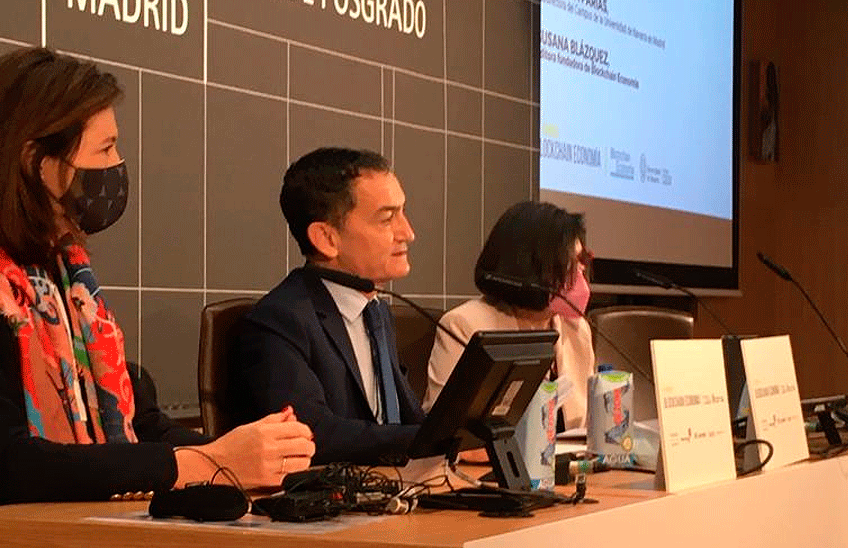News
LATEST NEWS AND EVENTS FROM THE SCHOOL OF ENGINEERING
Tecnun co-organizes the III Blockchain workshop Economics with 18 experts
The session took place at campus of the University in Madrid.

FotoCedida/Participantsin the III workshop Blockchain Economics
25 | 10 | 2021
The III workshop Blockchain Economics #BCKE21 was held at campus in Madrid at the University of Navarra, co-organized by. Tecnun. More than 18 renowned experts have talked about investment, taxation, regulation and market.
The expectation was great, with almost 900 registered participants. In just three editions, the workshop Blockchain Economics has become the benchmark for the Spanish sector, with top international experts and a large number of professionals attending . This year's edition was held at Campus of the University of Navarra in Madrid. The School of Engineering sponsored the event, which was attended by professors from IESE and the University of Navarra.
The University Secretary of Digital Administration Ministry of Economic Affairs and Digital Transformation (MAETD), Juan Jesús Torres Carbonell, has opened the workshop. Regarding Blockchain, the MAETD hosts nodes of the European network EBSI (European Blockchain Services Infrastructure), and has just signed the historic Spanish-German agreement to boost decentralized Digital Identity in Europe. Germany has sought alliance with Spain in this agreement, to realize a cross-border ID pilot. Spanish experts are in demand in European blockchain projects and regulation, and in international standardization groups. Ignacio Alamillo is one of them, he has introduced DLT/blockchain technologies in the new European ID regulatory framework Regulation eIDAS, which will be released in a few months.
Meanwhile, Spanish developer Izertis (projects in 50 countries) brings the Spanish ID blockchain standard to Africa and the Caribbean. Izertis realises the mobile health data management system for the inhabitants of Cape Verde (with the support of the World Bank). Cape Verde is working to become the hub for blockchain technology services in Africa.
Blockchain also reaches the third sector. This was explained by Arancha Martínez, an economist trained in the City of London, a pioneer in applying this technology after living in India for five years. Her NGO Itwillbe uses blockchain to give traceability to donations, and uses palm biometrics to give Digital Identity to street children in the third world.
Bitcoin brought Blockchain technology to exchange value at the end of 2008. It has been the beginning of a financial revolution that will affect the entire Economics. Cryptocurrencies and Stable Coins (stable value cryptocurrencies) have led to the new paradigm of CBDCs (central bank digital currencies). The central banks of the seven major economies are studying the change. China has already done so. Another new paradigm is decentralized finance, DeFi. They open up a range of more customized solutions, and the companies driving them are growing at an accelerated rate. The money held in the Smart Contracts (conditional order program of a blockchain, they execute payments, for example) of DeFi amounts to $181 billion.
Regulators are decisive. The Bank of Spain is the transmission belt of the digital euro investigated by the European Central Bank. The CNMV (National Securities Market Commission) oversees the new tools of decentralized finance in the investment world. Both are in the Spanish Sandbox, the instrument that accelerates the entrance of Fintechs. Half of the 18 projects admitted to the Sandbox are Blockchain.
Finally, Minsait / Indra explained the global scenario of CBDC digital currencies, which will transform monetary systems. The group of the seven leading central banks is studying with the BIS (Bank for International Settlements) how to implement them in order to avoid systemic risks.
